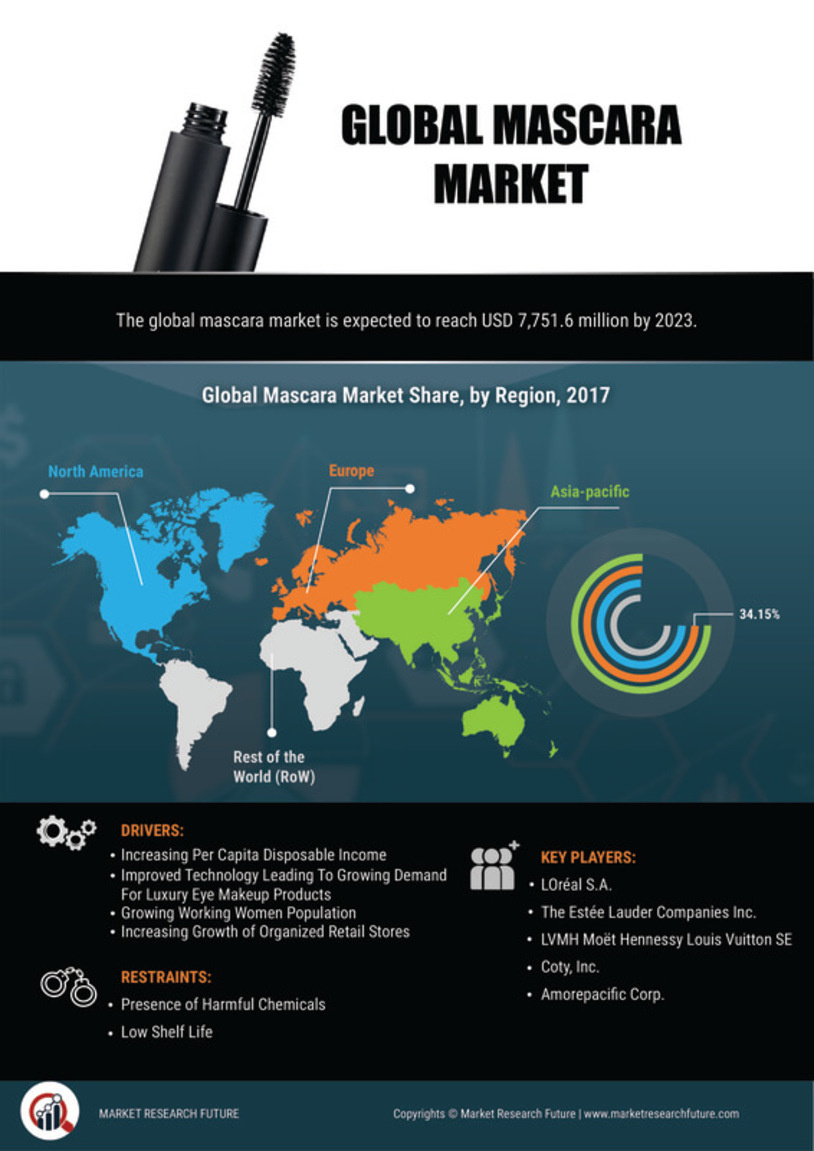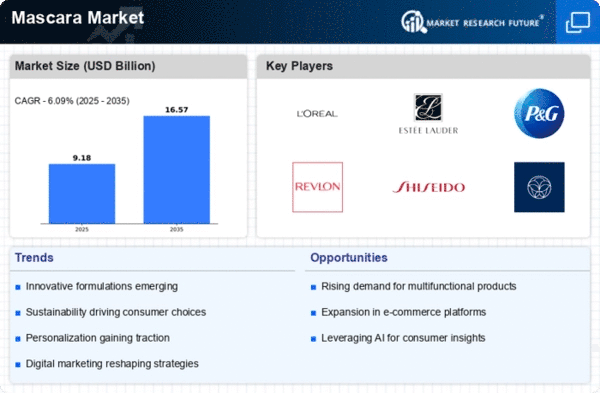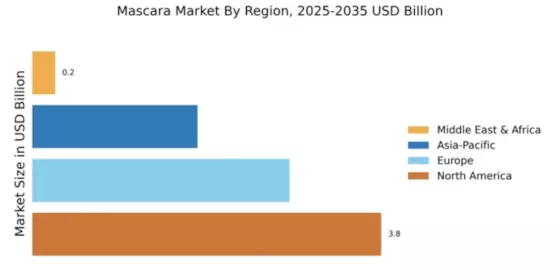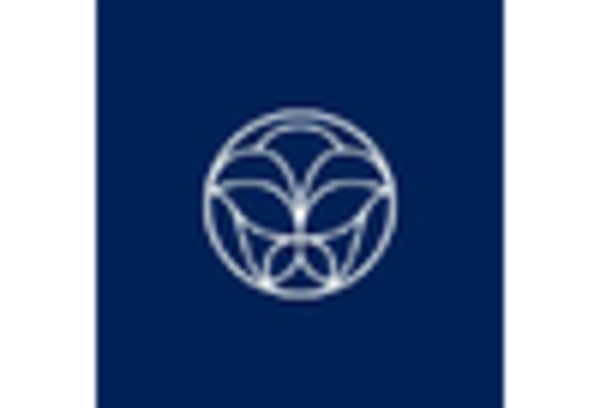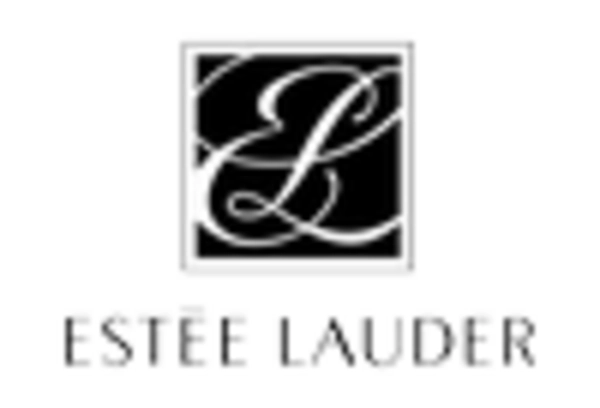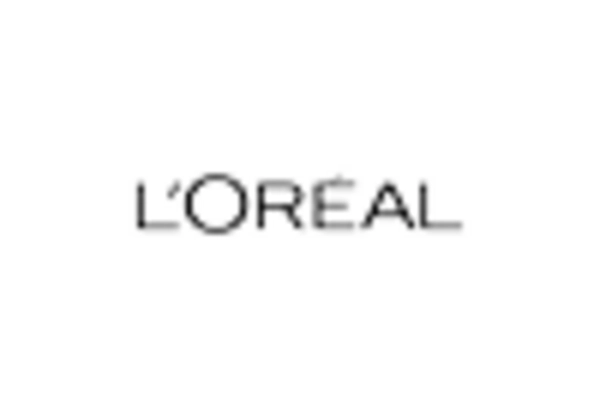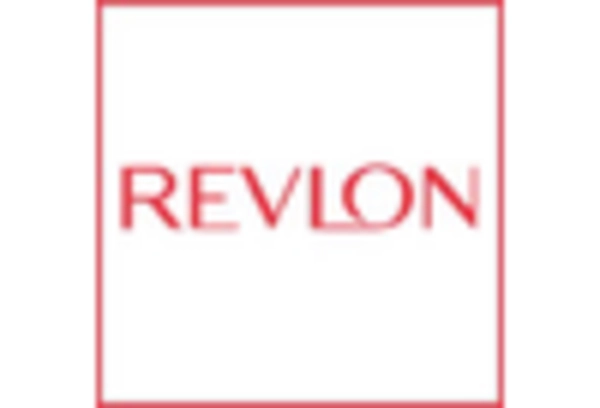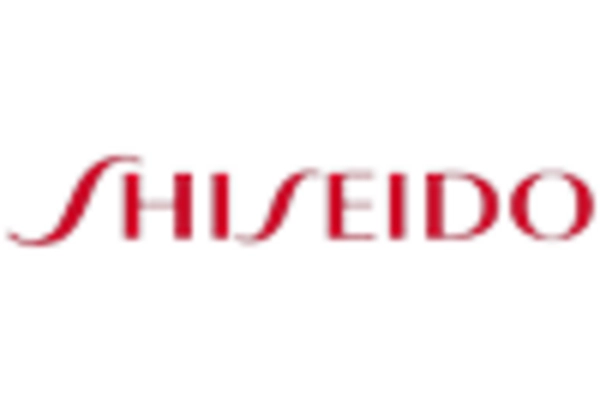Market Growth Projections
The Global Mascara Market Industry is poised for substantial growth, with projections indicating a rise from 8.65 USD Billion in 2024 to 16.6 USD Billion by 2035. This growth trajectory suggests a compound annual growth rate (CAGR) of 6.09% from 2025 to 2035. Such figures reflect the increasing consumer investment in beauty products, particularly mascara, as it remains a staple in makeup routines. The anticipated growth is likely driven by factors such as innovation, changing consumer preferences, and the influence of social media. This upward trend indicates a robust market environment for mascara brands, presenting opportunities for expansion and product development.
Expansion of E-commerce Platforms
The Global Mascara Market Industry benefits from the rapid expansion of e-commerce platforms, which provide consumers with convenient access to a wide range of mascara products. Online shopping has gained immense popularity, allowing consumers to explore various brands and formulations from the comfort of their homes. This trend is particularly relevant in the context of the growing digital landscape, where consumers increasingly prefer online purchasing. The ease of comparing products and reading reviews enhances consumer confidence, potentially leading to increased sales. As e-commerce continues to evolve, brands that optimize their online presence may capture a larger share of the mascara market.
Innovation in Product Formulations
Innovation plays a pivotal role in the Global Mascara Market Industry, as brands continuously develop new formulations to meet evolving consumer preferences. The introduction of waterproof, smudge-proof, and volumizing mascaras caters to a wide range of needs, enhancing user experience. Additionally, the incorporation of nourishing ingredients, such as vitamins and natural oils, appeals to health-conscious consumers. This focus on innovation is expected to contribute to the market's growth, with projections indicating a rise to 16.6 USD Billion by 2035. As brands strive to differentiate themselves, the emphasis on unique formulations is likely to drive consumer loyalty and expand market share.
Rising Demand for Eye Makeup Products
The Global Mascara Market Industry experiences a notable surge in demand for eye makeup products, driven by changing beauty standards and increased consumer interest in eye cosmetics. As consumers prioritize eye makeup, mascara sales are projected to reach 8.65 USD Billion in 2024. This growth reflects a broader trend where eye makeup is becoming a staple in daily beauty routines, particularly among younger demographics. The emphasis on eye-catching looks, especially in social media-driven environments, further propels this demand. Consequently, brands are innovating with formulas and applicators to cater to diverse consumer preferences, enhancing the overall appeal of mascara in the beauty market.
Growing Awareness of Sustainable Beauty Products
Sustainability is increasingly becoming a focal point in the Global Mascara Market Industry, as consumers exhibit a growing awareness of eco-friendly beauty products. Brands are responding by developing sustainable mascara options, utilizing recyclable packaging and ethically sourced ingredients. This shift aligns with the broader trend towards sustainability in consumer goods, where environmentally conscious choices are prioritized. The demand for sustainable products is expected to drive market growth, as consumers are willing to pay a premium for eco-friendly options. This trend not only enhances brand reputation but also fosters customer loyalty, positioning sustainable mascara brands favorably in the competitive landscape.
Influence of Social Media and Beauty Influencers
The Global Mascara Market Industry is significantly influenced by social media platforms and beauty influencers, who play a crucial role in shaping consumer preferences. With the rise of platforms like Instagram and TikTok, beauty influencers showcase various mascara products, often leading to viral trends that boost sales. This phenomenon encourages brands to invest in influencer partnerships and targeted marketing campaigns. As a result, the visibility of mascara products increases, attracting a broader audience. The impact of social media on purchasing decisions is profound, suggesting that brands that effectively leverage these platforms may experience accelerated growth in the coming years.
